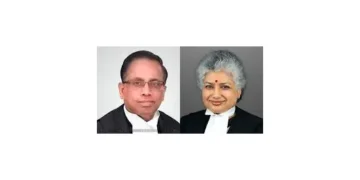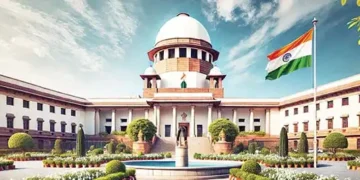Blitz Bureau
NEW DELHI: The Supreme Court has stressed that women constitute the “largest minority” in India and that political equality for them is a constitutional pledge, as it sought the Centre’s response on a public interest plea seeking the implementation of the women’s reservation law, which mandates that one-third of seats in the Lok Sabha, State legislative assemblies, and the Delhi Assembly, will be reserved for women.
A Bench of justices BV Nagarathna and R Mahadevan, while hearing the plea, remarked that the promise of equality in the Preamble must translate into real representation.
“The Preamble says political and social equality. Who is the largest minority in this country? It is the woman… almost 48 %. This is about the political equality of women,” Justice Nagarathna observed during the hearing. She remarked that women are the largest minority in the country. The Bench was hearing a plea filed by Congress leader Jaya Thakur, seeking the implementation of the Women’s Reservation Act 2024 without waiting for the execution of a fresh delimitation exercise.
The petitioner said that even after over seven decades since India became an independent nation, it is unfortunate that one has to move court for the representation of women. Justice Nagarathna, while directing the petition be served on the Government, sought a reply on when the delimitation exercise be held. She further clarified that enforcement of law is up to the executive and the court cannot issue a mandamus (a court order to perform a specific act or duty).
The Constitution (106th Amendment) Act, 2023, reserves one-third of all seats for women in Lok Sabha, State legislative assemblies, and the Legislative Assembly of the National Capital Territory of Delhi, including those reserved for SCs and STs. The reservation will be effective after the publication of the census conducted following the Act’s commencement and endures for a 15-year period, with potential extension determined by parliamentary action. The rotation of seats allocated for women will be governed by parliamentary legislation after each delimitation process.































